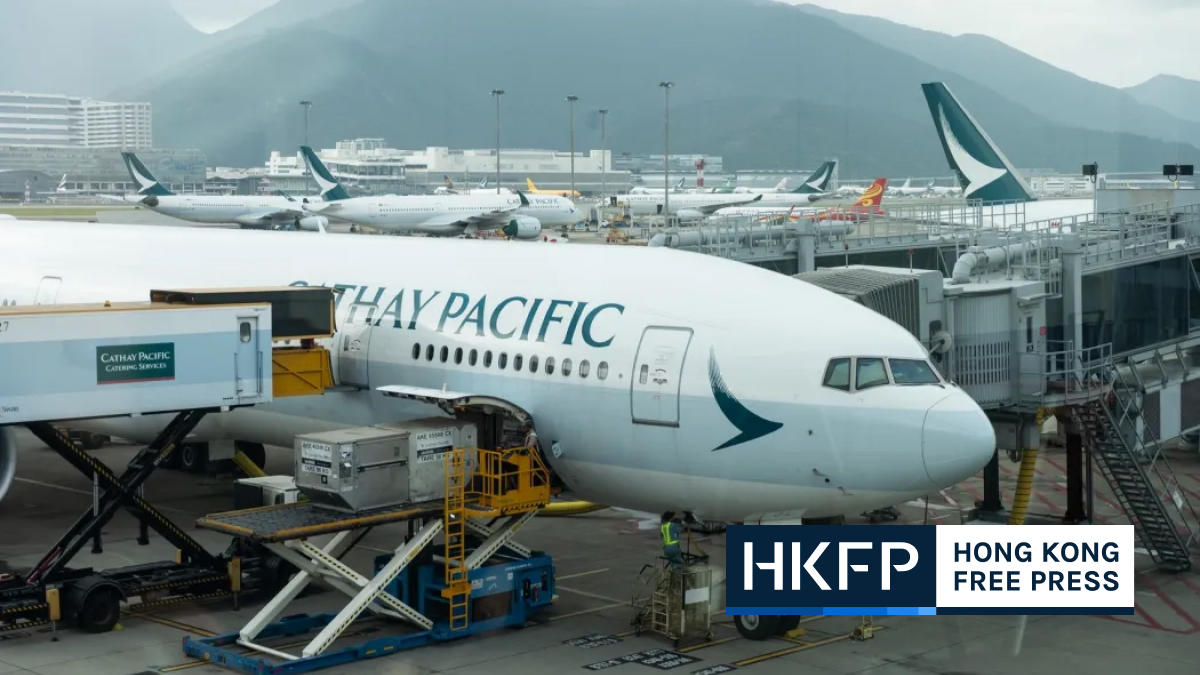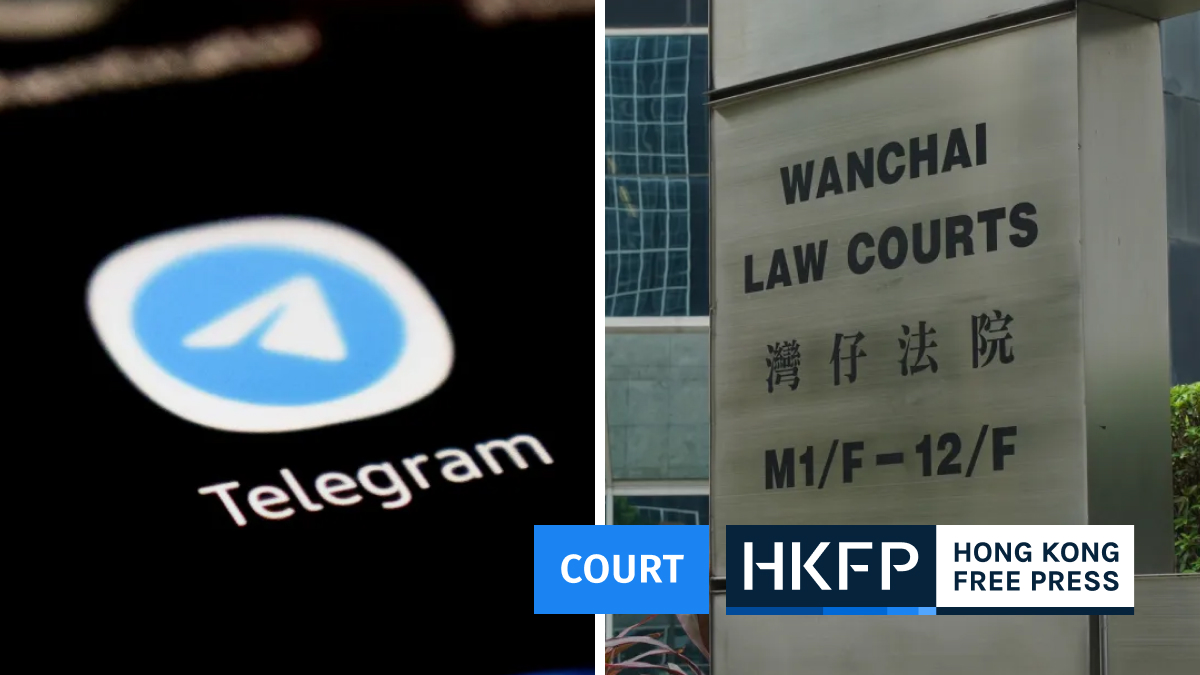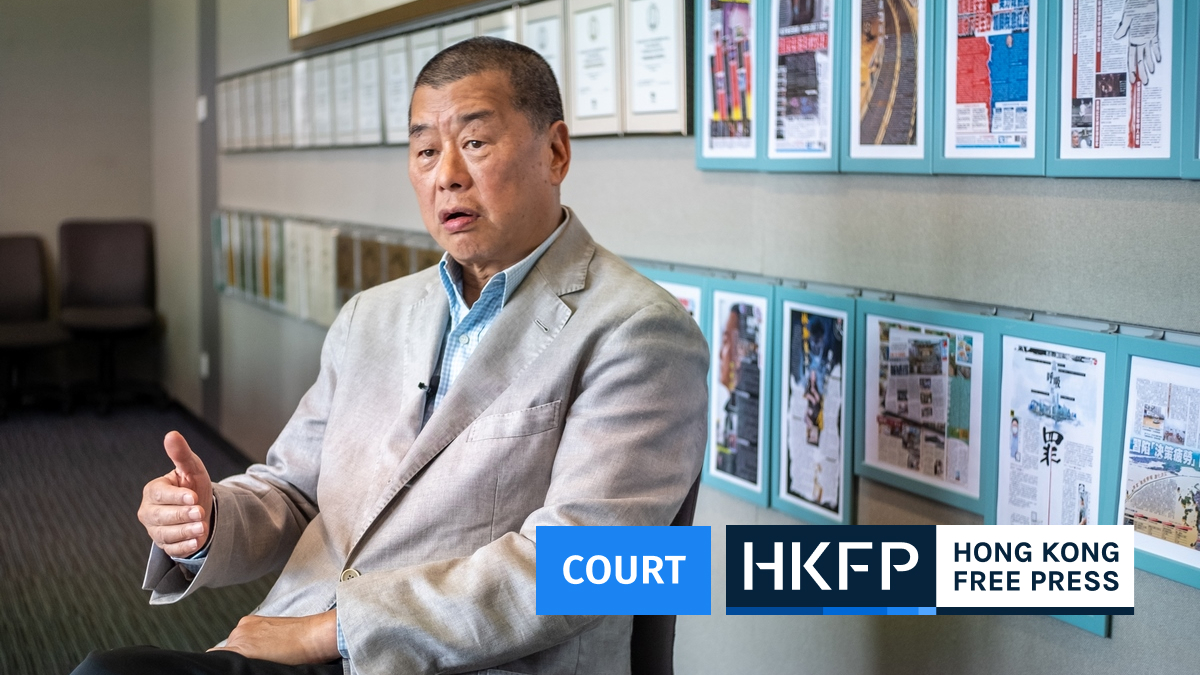Part of HKFP’s Shifting Narratives series.
The fifth wave of Covid-19 in Hong Kong has brought the city’s public health system to its knees and seen infections soar beyond 1 million cases. The city’s per capita death rate is the highest in the world.
The government has imposed the strictest social distancing measures to date, while shifting its stance on a number of plans and policies, including citywide testing, partial lockdowns, and the postponement of the chief executive election.

Chief Executive Carrie Lam has defended changes in Covid-19 policy as “timely adjustments,” saying there were no U-turns as the government had responded to the “unprecedented” pandemic situation “as best as they could.”
HKFP traced how government policies have evolved during the fifth wave.
The ban on dine-in services after 6 p.m.
On January 3, the government issued a statement clarifying messages about plans to lock down the city and ban eating in restaurants after 6 p.m. that were circulating on the internet and WhatsApp.
A government spokesperson condemned those spreading rumours for causing panic, and said that the administration had no plans to impose lockdowns or ban dine-in services after 6 p.m.
“The Government has all along been transparent with its epidemic control measures and will make announcements as early as possible. Any unhelpful speculation or spreading of rumours is counterproductive in the fight against the epidemic by the Government and the people of Hong Kong,” the spokesperson said in the statement.
The following day, Chief Executive Carrie Lam said that the city had “yet to reach the position that social distancing measures have to be tightened.”
“At the moment, today, I will not say that we are considering further restricting social distancing measures very soon,” Lam said.

A day later, on January 5, the government announced the tightening of a series of social distancing measures, including the ban on dine-in services in eateries after 6 p.m., and the suspension of operations of scheduled premises, including cinemas, gyms, and massage parlours.
When asked why the government changed its stance within 24 hours, and whether it had made a mistake in deciding not to tighten social distancing rules a day earlier, Lam said that her response “was still accurate.”
“What happened in the past 24 hours was very unsettling for us” Lam said. “I hope that media friends can see this type of quick reaction from us, that once the situation changed, we took action, and the actions taken this time were strict, quick, and ruthless.”
Suspending face-to-face teaching
During the same January 4 press conference when Lam said the government would not impose more stringent social distancing rules, the chief executive also said that she would not suspend in-person classes.

“Because now gradually we can see that the impact of class suspension is great on students, a lot of educational psychologists have done a lot of research, showing that the loss of face-to-face teaching has a huge impact on students, especially for students from more grassroots backgrounds,” said Lam. “This is a decision that I will not make easily.”
Four days later, the Education Bureau (EDB) issued a statement refuting a photo doing the rounds on the internet and messaging groups that said it was considering suspending all face-to-face teaching before January 12. The EDB said that in-person teaching “will continue at this stage.”
Then, on January 11, the EDB announced the suspension of face-to-face teaching in all kindergartens, primary schools, and preschools from January 14. The suspension of in-person lessons in secondary schools was announced a little over a week later on January 20.
Postponing the chief executive election
As the number of daily cases continued to climb in early February after the Lunar New Year holiday, Lam was asked on February 8 whether she would consider postponing the chief executive election, which was scheduled to be held on March 27.

“You all know that the chief executive election is a small-scale election, with no more than 1,500 votes. I believe that executing anti-epidemic measures to ensure that this election can be held in a safe situation is far easier than the Legislative Council election, which involved millions of voters. That’s why I don’t see a need to postpone this election because of the pandemic,” Lam said in response.
Ten days later, the chief executive announced that the election would be postponed until May 8, citing the use of the Emergency Regulations Ordinance.
The announcement that it would be delayed came two days after China’s leader Xi Jinping reportedly gave “important instructions” regarding Hong Kong’s anti-epidemic efforts, where the SAR government was told to make getting the pandemic under control “the mission that supersedes all.”

“I believe you all know that this decision was made based on the most severe situation Hong Kong has faced in the two years of fighting the pandemic. We can say that the situation is dire,” Lam said on February 18.
“Under the premises of public health and protecting citizens’ health, the SAR government must concentrate its power to deal with the pandemic, and should not be distracted, and also cannot bear to lose. This also fits the spirit of the important instructions given by the president of the country Xi Jinping in recent days, that we have to put controlling the pandemic as the mission that supersedes all.”
Citywide testing
During the same press conference when the chief executive said that the election would not be postponed, Lam responded to a reporter’s question as to why the government had refused to impose citywide testing.
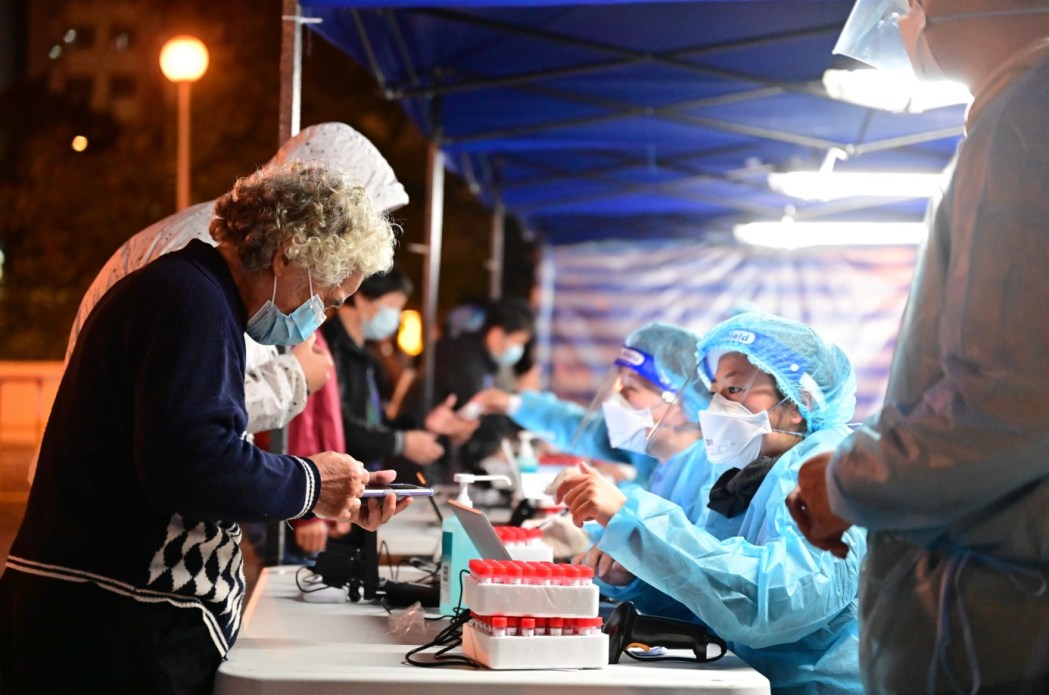
“Any capability of the government, including capabilities to test, treat, and quarantine, are not limitless. In order to reach the best result in fighting the pandemic, we have to use these capacities with focus, and not randomly disperse these powers and end up with no results,” said Lam on February 8.
Around two weeks later, after the Central government agreed to provide assistance to the local government, the chief executive made an announcement about plans to conduct compulsory universal testing in March.
However, after Lam’s February 22 announcement, the government did not confirm details of how citywide testing would be carried out, including when it would happen or the duration of the testing period.
On March 7, Liang Wannian, a top mainland Chinese Covid-19 expert visiting Hong Kong, said that the city’s main concern was “reducing the numbers of infections, serious cases and deaths.”

Two days later, the chief executive said that compulsory citywide testing was “not a priority,” but “preparation work and planning [for mass testing] will continue.”
On Thursday, the chief executive said that the government would review some Covid-related policies – including whether to conduct mandatory universal testing in coming days – and said that an announcement will be made either on Sunday or next Monday.
Citywide lockdowns
When announcing the citywide testing on February 22, the chief executive said that the government did not plan to implement a lockdown banning all outings during the testing period.
“Actually it is also unrealistic, because I believe that there will be tens of thousands of even just workers that have to go out to facilitate testing. These people have to go out, or else who will be conducting so much work related to testing?”
However, on February 28, Secretary for Food and Health Sophia Chan said on Commercial Radio that a citywide lockdown was still “under discussion,” sparking panic buying.
Urging calm a day later, the chief executive said that the administration still had to assess the “extent of the so-called limiting citizens from going out.”

The same message was delivered again on March 3, when the chief executive said that there will not be a “wholesale” city lockdown in Hong Kong.
“We all know that some places implemented a citywide ‘curfew’ or ‘lockdown’ where there was no coming in or out – Hong Kong will definitely not implement this,” Lam said.
Easing quarantine restrictions for arrivals
Hong Kong has some of the strictest travel restrictions in the world. Arrivals have to undergo 14 days of mandatory isolation at one of the city’s designated hotels, with expats citing the harsh travel measures as one of their reasons for leaving Hong Kong.
Lam was asked on March 11 whether she would consider easing quarantine requirements for arrivals, seeing that the quarantine period for fully vaccinated local Covid patients had been shortened to seven days, providing patients test negative on the sixth and seventh day of their isolation period.
“I can understand the frustration, but at this moment Hong Kong is facing an unprecedented epidemic, so at this point in time my first priority is to ensure that we could protect people in Hong Kong, and also protect the public hospital system, so to make any relaxation for arrivals which will run any risk in those respects is not something the chief executive would like to see,” Lam said.
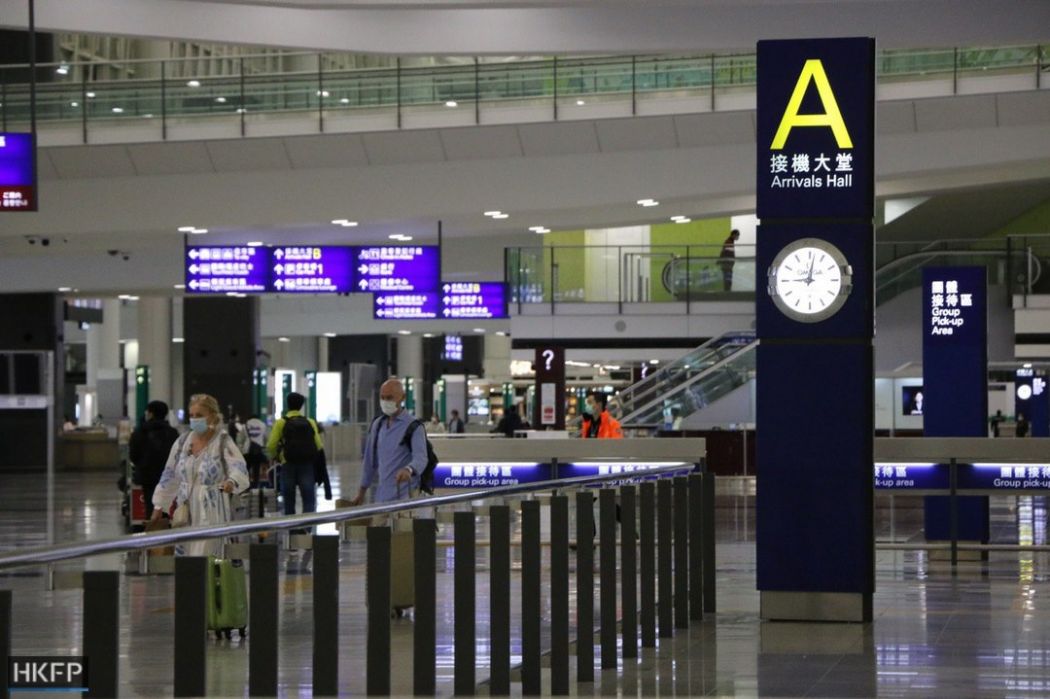
“But I did say that after this wave subsides, we will take an overall look at the border control, particularly for inbound arrivals, particularly for Hong Kong people who are now not allowed to come back because of the place-specific flight suspensions,” she added.
Then, speaking on Thursday, the chief executive said that “there was very strong basis” for the government to consider shortening the quarantine period for arrivals.
“In terms of consistency, there is a very strong basis for us to apply more or less the same rule to arrivals,” said the chief executive during her daily Covid-19 press conference on Thursday.
Lam said that she detected Hongkongers’ tolerance for strict social distancing measures was waning, and that she considered the city’s status as a financial centre.
“The reason why I think the time has come [for a review] is not because the number of cases has come down significantly – they are actually now at a high-level plateau. But I have a very strong feeling that people’s tolerance is fading,” Lam said.
Support HKFP | Policies & Ethics | Error/typo? | Contact Us | Newsletter | Transparency & Annual Report | Apps
Help safeguard press freedom & keep HKFP free for all readers by supporting our team


